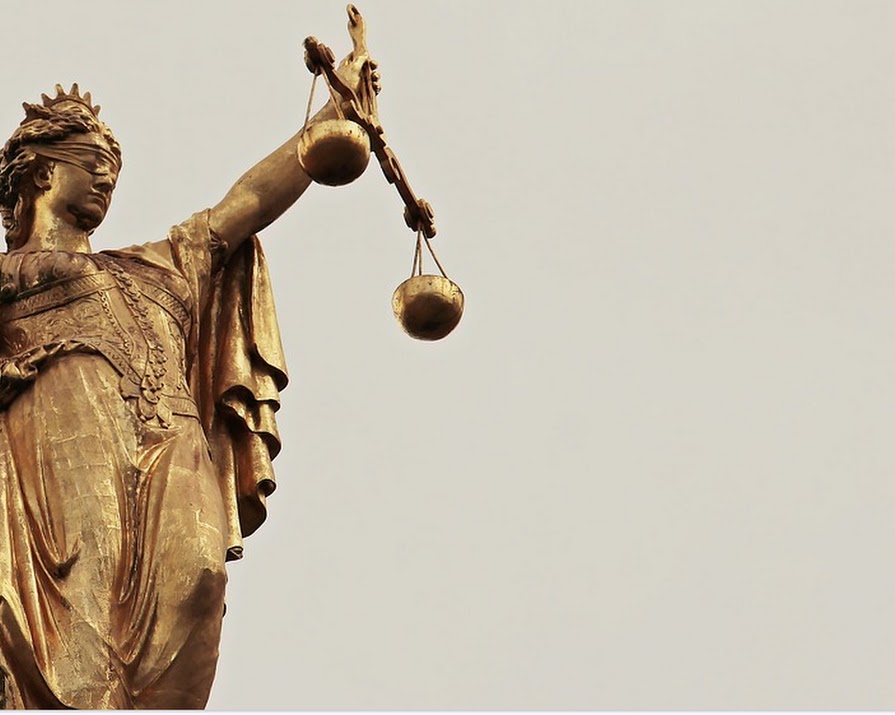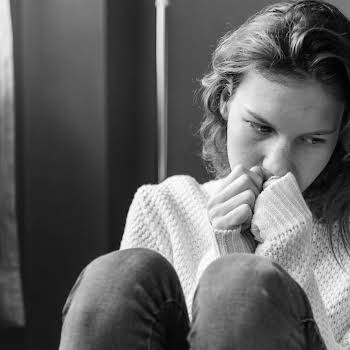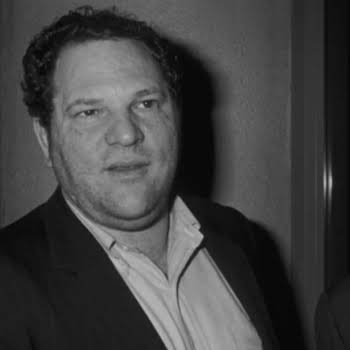
Rape On Trial: Is the legal system discouraging victims from coming forward?
By Amanda Cassidy
28th Mar 2018
28th Mar 2018
What were you wearing? How rough was the sex? Why didn’t you scream? When it comes to reporting rape or sexual assault, the full story often descends into he-said, she-said. The truth behind the allegations in a rape case may eventually come out in court, but as Amanda Cassidy discovers, in the court of public opinion, the focus often falls on the victim which may prevent others from coming forward.
“If a woman goes out late at night, wearing a short skirt, gets drunk and is the victim of a sexual assault, is she totally or partly to blame?” This was the question posed to over 8,000 people by the Fawcett Society, the UK’s leading charity which campaigns for gender equality and women’s rights recently, and the answers illustrated a disturbingly high level of hostility towards women. 38% of men and 34% of women believed that a female victim is wholly or in part to blame for being sexually assaulted. So is it any surprise that the majority of sexual assault and rape cases never get reported? Couple this with a gruelling legal system in which victims are asked hugely personal (often humiliating) questions in a court setting, as well as the bombardment of misinformation the public absorbs from some sections of the media, and it is easy to see why just a handful of sexual assault and rape cases are successfully brought to justice.
“There is no other crime I can think of where the victim is more victimised,” Rebecca Campbell, a professor of psychology in the US told the New York Times. “The victim is always on trial. Rape is treated very differently than other crimes.” It is creating a type of double victimisation, where those who make the allegations of sexual assault and rape are sometimes viewed as lying until proven otherwise.
In Ireland, our legal system presumes innocence until proven guilty. That’s often a hard pill to swallow for victims of sexual crime. In addition to this, the most intimate details of their lives are paraded (often in graphic detail) in front of the jury. Noeleen Blackwell is CEO of the Rape Crisis Centre in Dublin. She believes the current system is not adequate for the world we live in today;
“The current system is cruel from start to finish for someone who reports a rape or sexual assault. It is not geared towards finding the truth. Those accused simply have to plant reasonable doubt in the mind of the jurors – often with the objective of damaging the credibility of the complainant. In other jurisdictions, finding the truth is done in a more interrogative way to seek truth rather than proving the case of one side or another. This is not black or white and the system should reflect that.”
Last year, the Irish Times released figures showing that over the last five years, 30% of rape trials included questions about a complainant’s sexual history. Often cross-examination eludes to suggestions of promiscuity in a victim’s sexual past as a defence when it comes to the question of consent. The idea being that if they have previously consented to sex with others then it stands to reason that they would consent to sex with the perpetrator.
Recent figures from the Rape Crisis Network showed that over 85% of perpetrators were known to their victims which might also explain why so few of these crimes get reported. Ms Blackwell said over 30% of the 13,000 people calling the centre are quite young, under 29 years of age;
“A youth worker quoted in our report says that young people are really lost when it comes to consent. As a society, we must be stronger in our intolerance of non-consensual behaviour. We must build a wide-ranging understanding that non-consensual sex is always rape.”
‘Just Sex’
Just a fraction of these calls translate into actual convictions. Are people too afraid of the process to take it further? Is the reporting of high-profile sexual assault and rape cases in the media deterring victims from stepping forward?
Last year, an Oklahoma court stunned local prosecutors by declaring that state law doesn’t criminalise oral sex with a victim who is completely unconscious. The decision sparked outrage among critics who accused the system of engaging in victim-blaming. The attorney leading the case said the ruling left him gobsmacked. “To focus on why the victim was unable to consent puts the victim at fault. That is very wrong… and dangerous.”
The media coverage of sexual assault also raises some troubling gaps across the board that exist between law and evolving ideas about rape and consent. It is true that crimes involving sexual assault span a vast spectrum of scenarios that people find hard to reconcile – from a stranger lurking behind a bush who grabs an unsuspecting victim, to an intimate experience with someone you know that goes too far. But rape is rape and the psychological effect of having sexual intercourse against your will or being sexually assaulted is profound, long-lasting and extremely difficult to move on from no matter how it plays out.
So what incentive is there for reporting a rape and going on to press charges? Why would you take your rapist to court if you are going to have your sex life dragged over the coals. For revenge? For justice? For public safety? That sounds like a huge personal cost to any individual who may already be coming to terms with what just happened to them. If you were drinking alcohol or assaulted while on a date, victims often think they somehow brought it on themselves – these misconceptions may also be held by the jurors who have no special training bar a few words from the judge at the beginning of the trial.
A different approach
Of course, everyone has the right to a fair legal process. Those accused of a sexual crime they didn’t commit also suffer untold damage their reputation, their name will forever be associated with false accusations and especially when it comes to crimes of a sexual nature – it can be impossible to shake, even if acquitted. The complainant gets some measure of anonymity during the court process but for those who stand accused, their pictures are widely available to the general public. The statistics are fuzzy when it comes to the number of false rape allegations that are reported as there is a huge difference between cases that are dropped because of insufficient corroborating evidence, cases with malicious untruthful accusations and cases where sexual activity took place but there are several differences of understanding about whether or not it was consensual. The most accepted figures are from the UK Home Office which found that 4% of cases of sexual violence reported to the UK police were found or suspected to be false. At a wider European level, it indicates rates of between 2% and 6%. Only a minuscule amount of rape cases get as far as the court process with many victims deciding not to go ahead with a case or there is simply insufficient evidence.
But with so many of these crimes not being reported out of fear of the process itself, it certainly begs the question, is there a better way?
One solution mooted in New Zealand is to do away with jurors in sex crime trials and appoint a specially trained judge. A special report commissioned by the Government there found that rape trials feature “powerful cultural conceptions” that are “unique to sexual violence as a form of criminal offending.” In other countries, these types of trials are closed to the public, including the media, to protect the identity of victims and to avoid embarrassing victims or their families.
Of course, you could argue the same for any crime of a sensitive nature, but ultimately sexual crime needs to be tackled differently. There are societal nuances involved in a rape trial that you don’t find elsewhere, including the cultural tendency toward women being sexualised that may contribute to victim shaming, and the ease at which an accusation can be levelled against someone and stick.
Rape is the only crime in which victims have to scramble to explain that they didn’t want to be victimised. Our responsibility as a society is to do everything in our power to prevent such crimes happening in the first place. Failing that, we need to protect those who do get sexually violated. We need to bring their perpetrators to justice. We also need a legal system that can do all this while protecting a complainant once they are brave enough to step forward.























